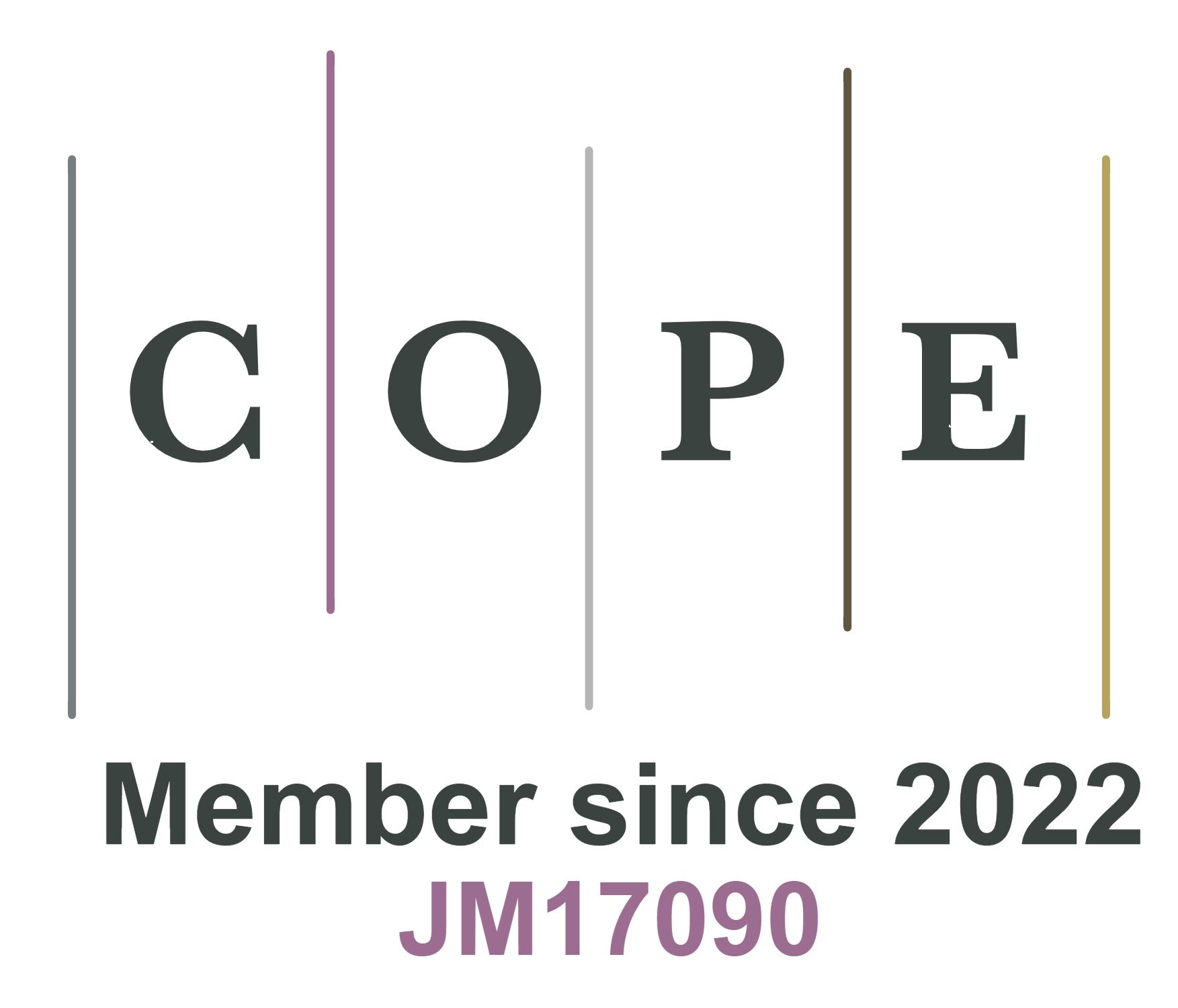REFERENCES
1. Jian, M.; Wang, C.; Wang, Q.; et al. Advanced carbon materials for flexible and wearable sensors. Sci. China. Mater. 2017, 60, 1026-62.
2. Chen, J.; Zhu, Y.; Chang, X.; et al. Recent progress in essential functions of soft electronic skin. Adv. Funct. Mater. 2021, 31, 2104686.
3. Nie, B.; Liu, S.; Qu, Q.; Zhang, Y.; Zhao, M.; Liu, J. Bio-inspired flexible electronics for smart E-skin. Acta. Biomater. 2022, 139, 280-95.
4. Bingger, P.; Zens, M.; Woias, P. Highly flexible capacitive strain gauge for continuous long-term blood pressure monitoring. Biomed. Microdevices. 2012, 14, 573-81.
5. Gao, W.; Ota, H.; Kiriya, D.; Takei, K.; Javey, A. Flexible electronics toward wearable sensing. Acc. Chem. Res. 2019, 52, 523-33.
6. Yilmaz, T.; Foster, R.; Hao, Y. Detecting vital signs with wearable wireless sensors. Sensors 2010, 10, 10837-62.
7. Amjadi, M.; Pichitpajongkit, A.; Lee, S.; Ryu, S.; Park, I. Highly stretchable and sensitive strain sensor based on silver nanowire-elastomer nanocomposite. ACS. Nano. 2014, 8, 5154-63.
8. Wang, Y.; Tebyetekerwa, M.; Liu, Y.; et al. Extremely stretchable and healable ionic conductive hydrogels fabricated by surface competitive coordination for human-motion detection. Chem. Eng. J. 2021, 420, 127637.
9. Li, S.; Liu, G.; Wen, H.; et al. A Skin-like pressure- and vibration-sensitive tactile sensor based on polyacrylamide/silk fibroin elastomer. Adv. Funct. Mater. 2022, 32, 2111747.
10. Hou, C.; Tai, G.; Liu, Y.; Wu, Z.; Liang, X.; Liu, X. Borophene-based materials for energy, sensors and information storage applications. Nano. Res. Energy. 2023, 2, e9120051.
11. Zhou, Y.; Wang, Q.; Zhang, X.; et al. Piezoionic transfer effect in topological borophene-bismuthene derivative micro-leaves for robust supercapacitive electronic skins. Nano. Energy. 2022, 104, 107970.
12. Zeng, Y.; Qin, Y.; Yang, Y.; Lu, X. A low-cost flexible capacitive pressure sensor for health detection. IEEE. Sensors. J. 2022, 22, 7665-73.
13. Yang, X.; Chen, S.; Shi, Y.; Fu, Z.; Zhou, B. A flexible highly sensitive capacitive pressure sensor. Sens. Actuators. A. Phys. 2021, 324, 112629.
14. Yang, L.; Wang, H.; Yuan, W.; et al. Wearable pressure sensors based on MXene/tissue papers for wireless human health monitoring. ACS. Appl. Mater. Interfaces. 2021, 13, 60531-43.
15. Cai, Y.; Shen, J.; Yang, C. W.; et al. Mixed-dimensional MXene-hydrogel heterostructures for electronic skin sensors with ultrabroad working range. Sci. Adv. 2020, 6, eabb5367.
16. Gao, Y.; Ota, H.; Schaler, E. W.; et al. Wearable microfluidic diaphragm pressure sensor for health and tactile touch monitoring. Adv. Mater. 2017, 29, 1701985.
17. Jia, J.; Huang, G.; Deng, J.; Pan, K. Skin-inspired flexible and high-sensitivity pressure sensors based on rGO films with continuous-gradient wrinkles. Nanoscale 2019, 11, 4258-66.
18. Zhan, L.; Cao, Y.; Gao, Y.; et al. Additively fabricated electronic skin with high performance in dynamic sensing as human skin. ACS. Appl. Electron. Mater. 2023, 5, 2017-25.
19. Zhang, H.; Li, H.; Li, Y. Biomimetic electronic skin for robots aiming at superior dynamic-static perception and material cognition based on triboelectric-piezoresistive effects. Nano. Lett. 2024, 24, 4002-11.
20. Feng, H.; Liu, Y.; Feng, L.; et al. Additively manufactured flexible electronics with ultrabroad range and high sensitivity for multiple physiological signals’ detection. Research 2022, 2022, 9871489.
21. Liu, C. H.; Yu, X. Silver nanowire-based transparent, flexible, and conductive thin film. Nanoscale. Res. Lett. 2011, 6, 75.
22. Mehta, R.; Chugh, S.; Chen, Z. Enhanced electrical and thermal conduction in graphene-encapsulated copper nanowires. Nano. Lett. 2015, 15, 2024-30.
23. Wissman, J. P.; Sampath, K.; Freeman, S. E.; Rohde, C. A. Capacitive bio-inspired flow sensing cupula. Sensors 2019, 19, 2639.
24. Slinker, K. A.; Kondash, C.; Dickinson, B. T.; Baur, J. W. CNT-based artificial hair sensors for predictable boundary layer air flow sensing. Adv. Mater. Technol. 2016, 1, 1600176.
25. Huang, S.; Zhang, B.; Lin, Y.; Lee, C. S.; Zhang, X. Compact biomimetic hair sensors based on single silicon nanowires for ultrafast and highly-sensitive airflow detection. Nano. Lett. 2021, 21, 4684-91.
26. Abolpour Moshizi, S.; Azadi, S.; Belford, A.; et al. Development of an ultra-sensitive and flexible piezoresistive flow sensor using vertical graphene nanosheets. Nanomicro. Lett. 2020, 12, 109.
27. Niu, H.; Li, H.; Gao, S.; et al. Perception-to-cognition tactile sensing based on artificial-intelligence-motivated human full-skin bionic electronic skin. Adv. Mater. 2022, 34, e2202622.
28. Kim, K. H.; Kim, J. H.; Ko, Y. J.; Lee, H. E. Body-attachable multifunctional electronic skins for bio-signal monitoring and therapeutic applications. Soft. Sci. 2024, 4, 24.
29. Neto, J.; Chirila, R.; Dahiya, A. S.; Christou, A.; Shakthivel, D.; Dahiya, R. Skin-inspired thermoreceptors-based electronic skin for biomimicking thermal pain reflexes. Adv. Sci. 2022, 9, e2201525.
30. Ahmadi, H.; Moradi, H.; Pastras, C. J.; Moshizi, S. A.; Wu, S.; Asadnia, M. Development of ultrasensitive biomimetic auditory hair cells based on piezoresistive hydrogel nanocomposites. ACS. Appl. Mater. Interfaces. 2021, 13, 44904-15.
31. Rizzi, F.; Qualtieri, A.; Dattoma, T.; Epifani, G.; De Vittorio, M. Biomimetics of underwater hair cell sensing. Microelectron. Eng. 2015, 132, 90-7.
32. Shizhe, T. Underwater artificial lateral line flow sensors. Microsyst. Technol. 2014, 20, 2123-36.
33. Goulet, J.; Engelmann, J.; Chagnaud, B. P.; Franosch, J. M. P.; Suttner, M. D.; van Hemmen, J. L. Object localization through the lateral line system of fish: theory and experiment. J. Comp. Physiol. A. Neuroethol. Sens. Neural. Behav. Physiol. 2008, 194, 1-17.
34. Klein, A.; Bleckmann, H. Determination of object position, vortex shedding frequency and flow velocity using artificial lateral line canals. Beilstein. J. Nanotechnol. 2011, 2, 276-83.
35. Dangles, O.; Magal, C.; Pierre, D.; Olivier, A.; Casas, J. Variation in morphology and performance of predator-sensing system in wild cricket populations. J. Exp. Biol. 2005, 208, 461-8.
36. Ozaki, Y.; Ohyama, T.; Yasuda, T.; Shimoyama, I. . An air flow sensor modeled on wind receptor hairs of insects. In: Proceedings IEEE Thirteenth Annual International Conference on Micro Electro Mechanical Systems (Cat. No.00CH36308, Miyazaki, Japan. Jan 23-27, 2000. IEEE, 2022; pp. 531-6.
37. Fan, Z.; Chen, J.; Zou, J.; Bullen, D.; Liu, C.; Delcomyn, F. Design and fabrication of artificial lateral line flow sensors. J. Micromech. Microeng. 2002, 12, 655.
38. Yang, Y.; Klein, A.; Bleckmann, H.; Liu, C. Artificial lateral line canal for hydrodynamic detection. Appl. Phys. Lett. 2011, 99, 023701.
39. Wang, Y. H.; Lee, C. Y.; Chiang, C. M. A MEMS-based air flow sensor with a free-standing microcantilever structure. Sensors 2007, 7, 2389-401.
40. Han, J. S.; Oh, K. H.; Moon, W. K.; et al. Bio-inspired piezoelectric artificial hair cell sensor fabricated by powder injection molding. Smart. Mater. Struct. 2015, 24, 125025.
41. Wakabayashi, S.; Yamaguchi, T.; Arie, T.; Akita, S.; Takei, K. . Out-of-plane flexible electronic whisker array. In: 2020 IEEE 33rd International Conference on Micro Electro Mechanical Systems (MEMS), Vancouver, Canada. Jan 18-22, 2020. IEEE, 2020; pp. 235-8.
42. Liu, G.; Jiang, Y.; Wu, P.; Ma, Z.; Chen, H.; Zhang, D. Artificial whisker sensor with undulated morphology and self-spread piezoresistors for diverse flow analyses. Soft. Robot. 2023, 10, 97-105.
43. Ben, S.; Yao, J.; Ning, Y.; et al. A bioinspired magnetic responsive cilia array surface for microspheres underwater directional transport. Sci. China. Chem. 2020, 63, 347-53.
44. An, H.; Wang, S.; Li, D.; Peng, Z.; Chen, S. Self-cleaning performance of the micropillar-arrayed surface and its micro-scale mechanical mechanism. Langmuir 2021, 37, 10079-88.
45. Takei, K.; Yu, Z.; Zheng, M.; Ota, H.; Takahashi, T.; Javey, A. Highly sensitive electronic whiskers based on patterned carbon nanotube and silver nanoparticle composite films. Proc. Natl. Acad. Sci. U. S. A. 2014, 111, 1703-7.
46. Wu, Z.; Ai, J.; Ma, Z.; et al. Flexible out-of-plane wind sensors with a self-powered feature inspired by fine hairs of the spider. ACS. Appl. Mater. Interfaces. 2019, 11, 44865-73.









